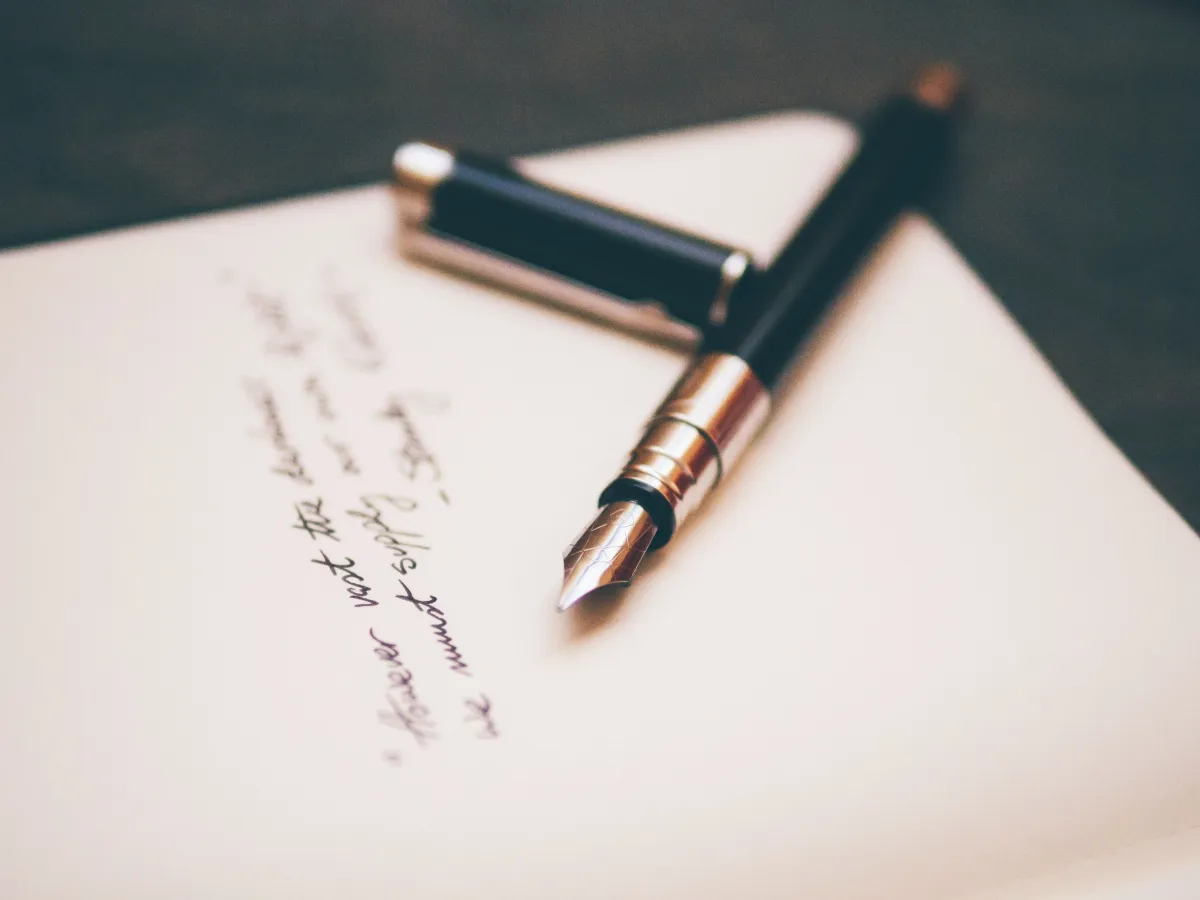
Aretha Franklin’s Handwritten Wishes Highlight Pitfalls of Home-made Wills
Choosing what happens to your assets after death can appear very straightforward on the surface. You may ask yourself why it’s worth even drawing up anything formal, especially if you don’t have many assets to begin with. Why pay a professional when you can make your own will?
While some people understand the importance of formally committing their wishes to record, for others, it seems like overkill. Even people with significant estates can fall into the trap of creating a home-made will and inadvertently causing unnecessary contention after they’ve gone.
Aretha Franklin’s High-Profile Case of the Home-made Wills
Take the recent case of Aretha Franklin’s home-made will. After her death at the age of 76, the singer was believed to have died intestate (i.e. with no will) in August 2018. With that in mind, the decision was made to grant each of her sons an equal portion of her assets. However, nine months later, a handwritten document dated June 2010 was found in a locked cabinet. The home-made will listed Franklin’s third son, Ted White II, as co-executor of her estate.
Shortly after this, another home-made will was found in a spiral bound notebook under a couch cushion in the singer’s $1.2m home. This second document was dated March 2014 and listed Franklin’s second son, Kecalf Franklin, as co-executor. While Kecalf and his brother, Edward, argued that this was the primary will, Ted White II continued to contend that the document from the locked cabinet was the only formal record of their late mother’s wishes.
The conflict led to the case being put to a jury to determine if the latter document qualified as a valid will. In just six hours, a verdict was reached, and the second will was determined to be the formal last will and testament of Aretha Franklin. It nullified the document dated four years previously. The ruling ended a family dispute that had been raging for five years. And not everybody was pleased with the result.
The Hidden Costs of Home-Made Wills
In addition to the confusion that can come hand in hand with home-made wills, there is also the possibility that you will be costing your loved ones quite a bit of money. Aretha Franklin was worth $80m when she died. Several unpaid taxes reduced the estate significantly, but the five years of in-fighting that followed also chipped away at the assets.
Legal fees and inheritance tax may be the last thing on your mind, but it’s important to take that into consideration when it comes to home-made wills. Saving yourself a fee in the short term can ultimately end up costing your family much more than you bargained for. In the case of Aretha Franklin, it ended up costing millions.
By the time the issue with the wills had been resolved, Aretha Franklin’s estate came in at around $6m. Not a number to be sniffed at, but a significant drop from the original $80m fortune.
Home-made Wills Can Muddy the Waters and Cause Family Feuds
While your average person won’t be leaving a hefty multi-million-pound estate to their loved ones, it’s still important to make sure that your intentions regarding your assets are clear.
It is possible to make your own will, of course, but there is a lot to consider. It’s not quite as simple as just jotting down your thoughts and hoping for the best.
1. If You Make Your Own Will, How Will Authorities Know Your True State of Mind?
Aretha Franklin began her final will with the words: “…being of sound mind, I write my will and testimony,” which was instrumental in determining whether the will was legitimate. However, even if you write your own home-made will with that caveat, there is no guarantee that it will be accepted. With no legal witnesses, it could be dismissed on the grounds of incapacity. Especially if, in later years, you suffer from dementia.
Visiting a solicitor in the first place reinforces your intentions. And your solicitor can vouch for your mental capacity at the time the will was created if it’s ever brought into dispute.
2. The Cost to Your Family Can Be Significant
Making your own will can mean that your loved ones spend a lot of time and money on legal fees after you’ve gone.
It’s important to get the legal bit out of the way while you’re still around to make your intentions known. A solicitor can talk to you about reducing any costs that could be incurred from dividing up your estate.
3. Home-Made Wills Are Open to Interpretation
If you make your own will, you risk confusing people with misspellings, grammatical errors or your own personal turn of phrase. And that can be especially true in the case of handwritten wills – what if nobody can read your handwriting to begin with?
Professional wills are drawn up much like legal contracts. They use strict contractual terms and clear wording, so that your final wishes are clear-cut. It makes life easier for your whole family while they are in a period of grief.
4. Dating Home-Made Wills Can Be Problematic
If you make your own will at home, you are at risk of misplacing it. As in the Aretha Franklin case, handwritten notes can slip between the cracks. If that happens, you might be tempted to draw up another version of your will. But when multiple wills are present after death, that can lead to confusion and disputes.
When you make changes to your will through a solicitor, you can rest assured that the changes will be valid, and it will be obvious which is the official, final version.
5. Home-Made Wills Are More Open to Forgery
If someone comes across your will in your home before the rest of the family is aware, they could amend, or even rewrite it. This could result in your loved ones missing out on what is rightfully theirs, and benefit someone who was never the intended recipient of your assets.
Drawing your will up with a solicitor gives you peace of mind that it is kept securely away from prying eyes and changeable only by you.
6. There’s a Very Good Reason Why You Should Consult a Professional
Even if you manage to carefully word your home-made will, it may still not be valid. There are strict rules for drawing up and executing a will and unless you are well versed in legalese, your document may be considered invalid.
Consulting a trained professional means that you can rest easy about the validity of your will.
Consulting a Specialist Solicitor Cuts Out the Uncertainty When It Comes to Your Will
The feud resulting from the multiple hand-made wills of Aretha Franklin is a great example of how families can be torn apart by the incorrect distribution of assets. A lot of contention and cost could have been avoided had there been just one professionally draw up will in that particular case.
Professionally drawn up wills are not only the easiest way to make your intentions clear from the outset, they’re also less likely to be contested than home-made wills. Your wishes will be translated into clear, legal language, and any subsequent changes will go through a trained solicitor. Visiting a legal expert also means that your state of mind can be verified after your death, so if there is any contest to your will, it won’t be on the grounds of ill health.
There is a risk of causing family rifts that can last decades when you create a home-made will, no matter how good your intentions. Nobody wants to leave their family in a state of flux after they’ve gone. And you certainly don’t want to be costing them a lot of money.
We strongly recommend that you get legal advice from a specialist solicitor. Winston Solicitors offers specialist guidance on how to execute your will. To talk to a qualified expert, please contact our Wills and Probate team on 0113 320 5000, or email wills@winstonsolicitors.co.uk.

